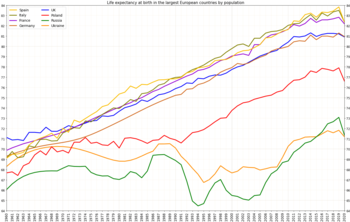
One in three Americans is affected by cancer, according to research. Our bodies are composed of trillions of cells, and cells die when they become abnormal. Cancer cells that don't die when they should can crowd out healthy cells, making it harder for our bodies to work. Many people suffering from cancer do not realize that they have a family history. This is where compassion steps in. By providing support and emotional support, you can help a person cope with the challenges of cancer.
Many people with cancer need support. This support can come from many places. Teenagers who have been diagnosed with cancer may need tutoring. Adults with cancer may also need assistance with their jobs and housework. Psychologists and counsellors can help patients cope with the emotional turmoil. It is normal and natural to feel upset after receiving a diagnosis. Depression can be caused by the grief at the loss of a loved one and changes in your life and body.

People with cancer might need support from multiple places. Adults and teenagers may require tutoring at home, but therapists are available to help with job duties and household chores. People often seek out a therapist for help with their emotional issues. Additionally, doctors will discuss the prognosis of cancer. This is a prediction about the likelihood of cancer returning. The prognosis will aid the patient in making informed decisions about treatment.
People with cancer need support. There are many organizations and services available to help patients cope. There are support groups for teens, home tutors for adults, and even therapists to talk to about their emotional problems. A doctor will also give you a prognosis. This is an estimate of how likely it is that your condition will recur after treatment. This will allow them the ability to choose the right support for their needs. The support network is vital for someone with cancer.
Talking to someone with cancer is difficult because they may have different needs. Some may need home tutoring while others may require help with chores or jobs. Many people will talk with therapists about their emotions. Patients may also be interested in talking to their doctor to learn about their prognosis. These prognoses will help guide the patient throughout the healing process.

There are many options for how to help someone with cancer. It is useful to have a support network with similar goals. Although asking about a patient's health won't help them, it will be helpful and comforting. They may need support if they are struggling with the diagnosis. They may be able give advice or emotional support to people with cancer. If you're unsure how to approach someone suffering from cancer, they can help you.
FAQ
How do you measure body fat?
The best way to measure body fat is with a Body Fat Analyzer. These devices are used for measuring the percentage of body fat in people who want to lose weight.
Is cold a sign of a weak immune response?
Cold can make you less immune to infection because your body makes fewer white blood cells, which are essential for fighting infections. However, being cold also makes you feel better because your body releases endorphins into your brain which reduce pain.
What is the difference in fat and sugar?
Fat is an energy source from food. Sugar is naturally found in fruits and veggies. Both fats (and sugars) have the same calories. But, fats have more calories than sugars.
Fats are stored in your body and can cause obesity. They can lead to cholesterol buildup in the arteries, which could cause heart attacks or strokes.
Sugars can be quickly absorbed by your body and give you instant energy. This causes blood glucose levels rise. High blood sugar levels can cause type II diabetes.
Do I need calories to count?
You might be asking "What is the best diet?" or "is counting calories necessary?" Well, the answer depends on several factors including your current health status, your personal goals, your preferences, and your overall lifestyle.
The Best Diet for Me - Which One is Right For You?
My personal health, goals and preferences as well as my lifestyle determine which diet is best for me. There are many different diets, some good and some not so good. Some diets work well for some people and others do not. So what should I do? How can I make the best decision?
This article aims at answering these questions. It begins by briefly describing the various diets available today. Then, the pros and cons of each type of diet are discussed. Finally, we'll look into how to choose the best one for you.
To begin, let's take a quick look at the different types of diets.
Diet Types
There are three main types: low-fat, high-protein, or ketogenic. Let's talk about them briefly.
Low Fat Diets
A low fat diet means a diet that reduces the intake of fats. This is accomplished by decreasing the intake of saturated fats such as butter and cream cheese. It is possible to replace these saturated fats with unsaturated ones (olive oil or avocados). For those looking to lose weight quickly, a low-fat diet is often recommended. However, this kind of diet may cause problems such as constipation, heartburn, and indigestion. A person may also experience vitamin deficiencies if they don't get enough vitamins.
High Protein Diets
High protein diets restrict carbohydrates in favor of proteins. These diets typically have more protein than other diets. These diets are meant to increase muscle mass, and burn more calories. Unfortunately, they can't provide adequate nutrition for those who eat regularly. Also, they tend to be very restrictive, so they aren't suitable for everyone.
Ketogenic Diets
Also known as keto diets, ketogenic diets are also called keto diets. They are high on fat but low in carbs and proteins. These foods are popular among athletes and bodybuilders as they allow them to train harder, longer and without becoming tired. But, they require strict adherence to avoid negative side effects like nausea, headaches, and fatigue.
Statistics
- Extra virgin olive oil may benefit heart health, as people who consume it have a lower risk for dying from heart attacks and strokes according to some evidence (57Trusted Source (healthline.com)
- WHO recommends consuming less than 5% of total energy intake for additional health benefits. (who.int)
- This article received 11 testimonials and 86% of readers who voted found it helpful, earning it our reader-approved status. (wikihow.com)
- nutrients.[17]X Research sourceWhole grains to try include: 100% whole wheat pasta and bread, brown rice, whole grain oats, farro, millet, quinoa, and barley. (wikihow.com)
External Links
How To
How to stay motivated to stick to healthy eating and exercise
Motivation tips for staying healthy
Motivational Tips for Staying Healthy
-
Make a list with your goals
-
Realistic goals
-
Be consistent
-
Recognize yourself for achieving your goal
-
Don't give up if you fail at first
-
Have fun